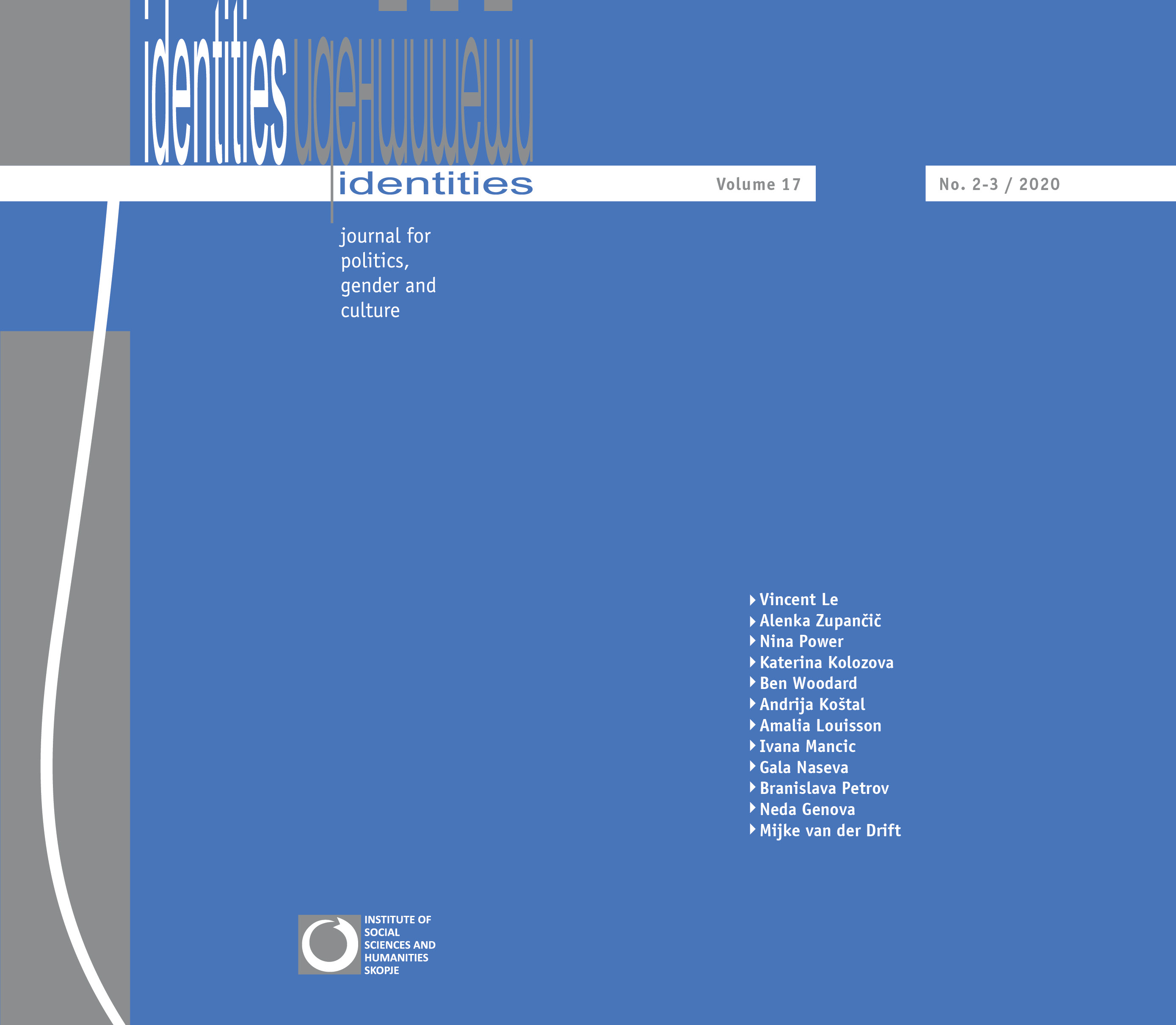Outside of Memories We Belong, Women of Yugoslavia
DOI:
https://doi.org/10.51151/identities.v17i2-3.460Keywords:
Autoethnography, Personal narrative, Emancipation of women, Yugoslavia, Photography, Family archive, Practice-based research, Female voiceAbstract
This article addresses the issues surrounding the Yugoslav Civil War by offering my personal narrative in relation to loss and disappearance resulting from the exposure to war and sanctions in the nineties and the “Merciful Angel“ operation of the bombing of Serbia by NATO in 1999. It thus focuses on the female interpretation of people, ways of life, buildings and human artifacts belonging to the historical period of communist Yugoslavia which once were, yet no longer remain. The work with archives, especially the photographs which originate from my personal family possession, brings closer these ghosts of the past times to the present moment. At the same time, photography is a means to investigate the position and treatment of women during and after the period of Yugoslavia, their efforts and struggles for emancipation. The usage of photography as a visual narrative allows an insight into the lives of women during communism through the lens of my closest female family members. The article tackles different issues concerning women in communist Yugoslavia, and follows certain steps in their history, from the emancipation following the Second World War and participation of women in battle as combatants and nurses, their efforts in rebuilding the country and subsequent reestablishment of patriarchal values which occurred at the start of Yugoslav Civil war and conflicts that marked it. Autoethnography as a research method combined with personal narrative allows a deeper understanding of culture and values of Yugoslav society and their subsequent clash. In addition to this, it celebrates the importance of female voice and activism in the constant battle against patriarchy and women who chose to defy it by acknowledging responsibility and the patriarchal nature of war. Photographic practice-based research allows an insight into individual stories which form a deeper understanding of the pre- and post- war Yugoslav society and political circumstances surrounding it.
Author(s): Ivana Mancic
Title (English): Outside of Memories We Belong, Women of Yugoslavia
Journal Reference: Identities: Journal for Politics, Gender and Culture, Vol. 17, No. 2-3 (Winter 2020)
Publisher: Institute of Social Sciences and Humanities - Skopje
Page Range: 82-88
Page Count: 7
Citation (English): Ivana Mancic, “Outside of Memories We Belong, Women of Yugoslavia,” Identities: Journal for Politics, Gender and Culture, Vol. 17, No. 2-3 (Winter 2020): 82-88.
Author BiographyIvana Mancic, Nottingham Trent University
Ivana Mancic is a Ph.D, researcher in Fine Art, School of Art and Design at Nottingham Trent University, U.K., with the focus on art practice aimed at the production of multi-disciplinary artworks, videos and installations, the purpose of which is to display the personal narrative to address the issues of war, loss and belonging, related to the specificity of the ex-Yugoslav context in order to contribute to the developing of the female voice of artists and pacifists in contemporary art. The personal narrative is presented in the written form through artworks, texts, essays and reflections on war experiences and current world crises through intersections between the present and the past.

Downloads
Published
How to Cite
Issue
Section
License
Copyright (c) 2020 Identities: Journal for Politics, Gender and Culture

This work is licensed under a Creative Commons Attribution-NonCommercial-NoDerivatives 4.0 International License.
Identities is published under the following license: Creative Commons Attribution-NonCommercial-NoDerivatives 4.0 International (CC BY-NC-ND 4.0). Under this license, users of our content must give appropriate credit to authors and source as well as indicate if changes were made, cannot be used for commercial purposes, and, in the instance that it is built upon or transformed, may not be distributed. For Identities, the copyrights allow the audience to download, reprint, quote in length and/or copy articles published by Identities so long as the authors and source are cited. For more information on our license, see the following: https://creativecommons.org/licenses/by-nc-nd/4.0.








